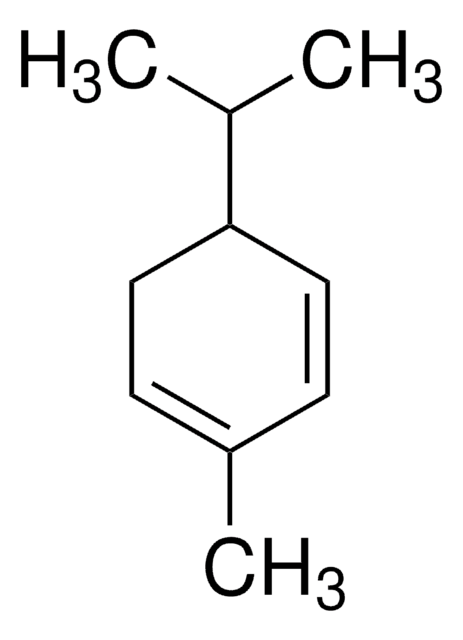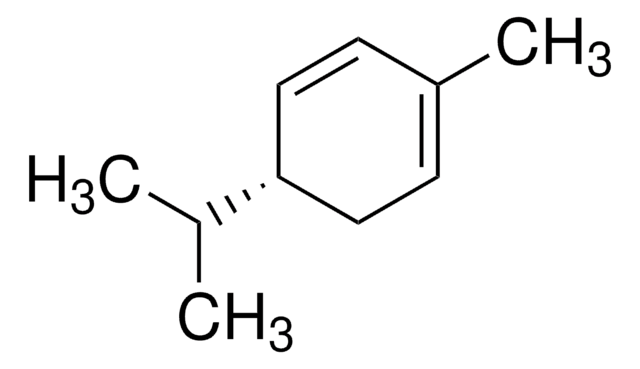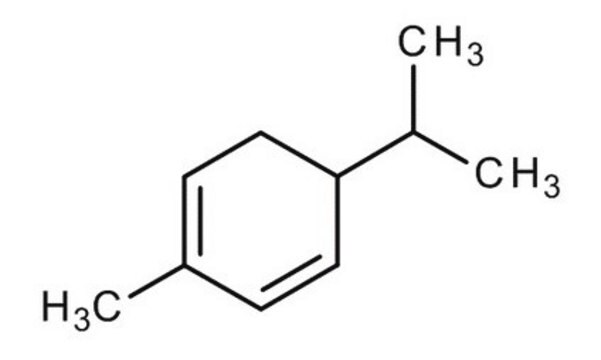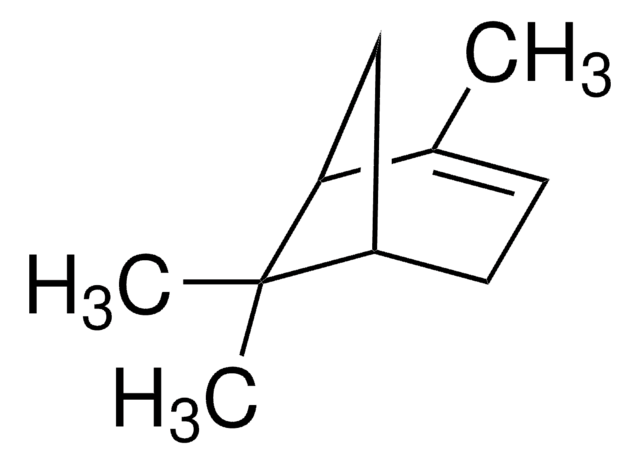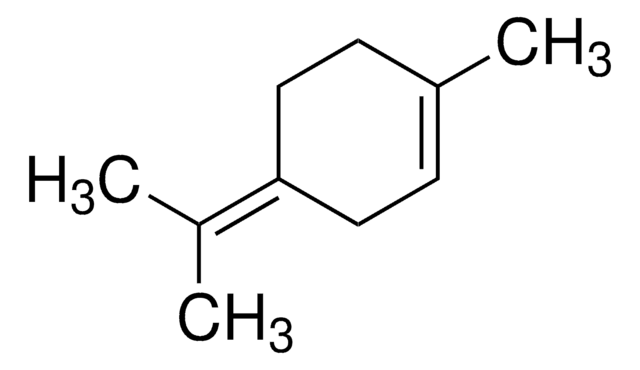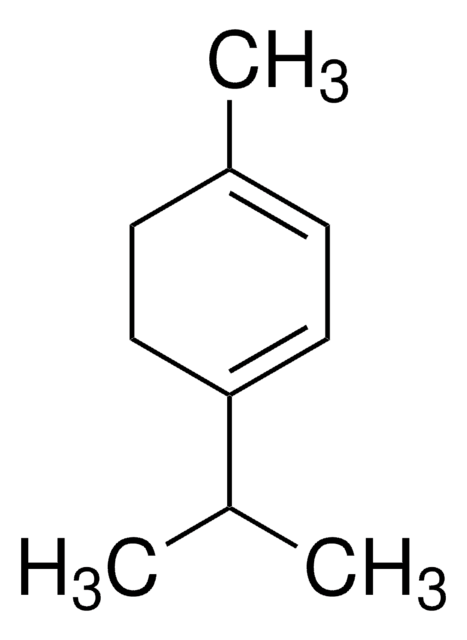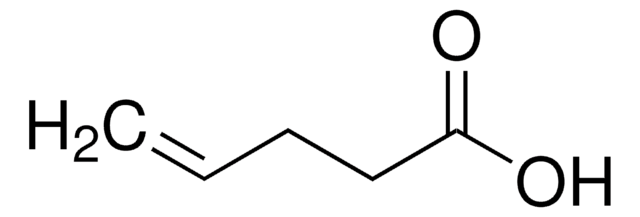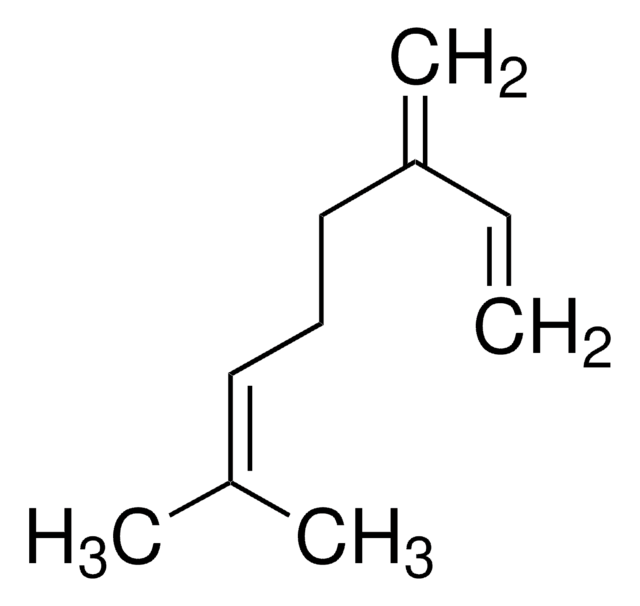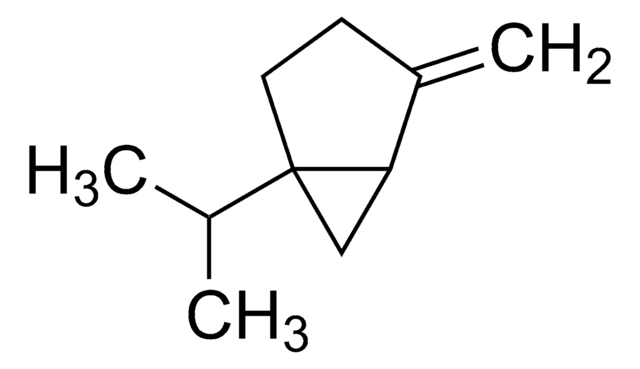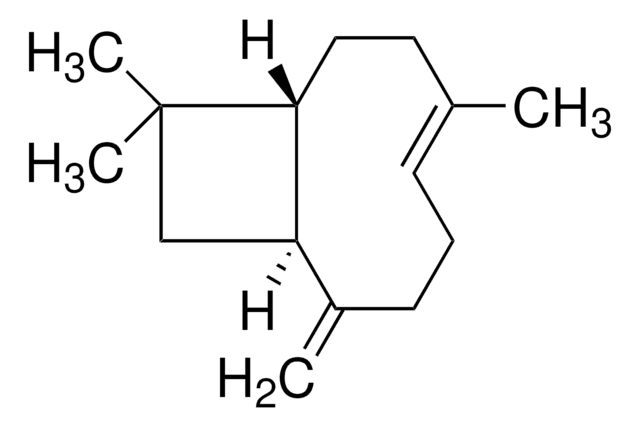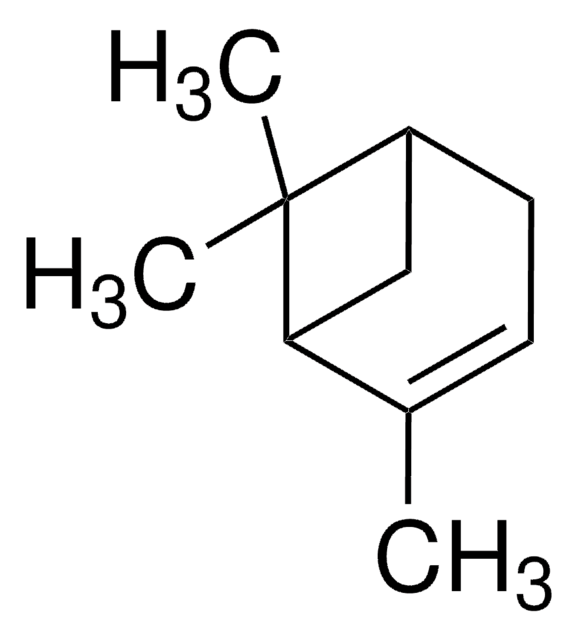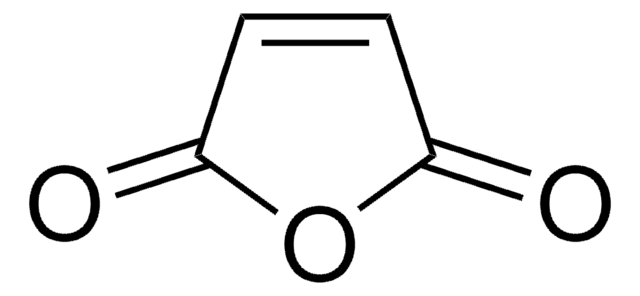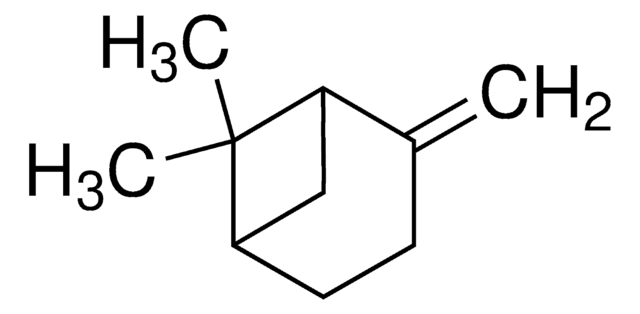W285609
α-Phellandrene
≥75%, stabilized
Synonym(s):
2-Methyl-5-(1-methylethyl)-1,3-cyclohexadiene
About This Item
Kosher
Recommended Products
biological source
synthetic
Quality Level
grade
Halal
Kosher
reg. compliance
FDA 21 CFR 172.515
Assay
≥75%
optical activity
[α]20/D −139 to −110°, neat
contains
alpha-tocopherol as additive
refractive index
n20/D 1.474 (lit.)
density
0.85 g/mL at 25 °C (lit.)
application(s)
flavors and fragrances
Documentation
see Safety & Documentation for available documents
food allergen
no known allergens
Organoleptic
spicy; woody
SMILES string
CC(C)C1CC=C(C)C=C1
InChI
1S/C10H16/c1-8(2)10-6-4-9(3)5-7-10/h4-6,8,10H,7H2,1-3H3
InChI key
OGLDWXZKYODSOB-UHFFFAOYSA-N
Looking for similar products? Visit Product Comparison Guide
Related Categories
Application
- Does green mean clean Volatile organic emissions from regular versus green cleaning products.: This research compares the volatile organic compound (VOC) emissions from conventional and green cleaning products, identifying a-phellandrene as a common component. The findings highlight the environmental impact of green products and their effectiveness (Harding-Smith et al., 2024).
- RNA-Seq-Based Transcriptomics and GC-MS Quantitative Analysis Reveal Antifungal Mechanisms of Essential Oil of Clausena lansium (Lour.) Skeels Seeds against Candida albicans.: The study uses RNA-Seq and GC-MS to investigate the antifungal properties of Clausena lansium essential oil, which contains a-phellandrene, against Candida albicans, providing insights into its potential therapeutic applications (Ma et al., 2023).
- Unveiling the Anti-Cholera and Active Diabetic Renoprotective Compounds of Maqian Essential Oil: A Computational and Molecular Dynamics Study.: This study identifies a-phellandrene as an active compound in Maqian essential oil with anti-cholera and renoprotective effects, suggesting its potential for treating cholera and protecting against diabetic renal damage (Dahab et al., 2023).
- Electrophysiological and Behavioral Responses of Batocera horsfieldi Hope to Volatiles from Pistacia chinensis Bunge.: This research examines the responses of Batocera horsfieldi to volatiles, including a-phellandrene, from Pistacia chinensis. The findings have implications for pest management strategies using natural volatiles (Fan et al., 2023).
Disclaimer
Signal Word
Danger
Hazard Statements
Precautionary Statements
Hazard Classifications
Asp. Tox. 1 - Flam. Liq. 3
Storage Class Code
3 - Flammable liquids
WGK
WGK 2
Flash Point(F)
116.6 °F - closed cup
Flash Point(C)
47 °C - closed cup
Personal Protective Equipment
Choose from one of the most recent versions:
Already Own This Product?
Find documentation for the products that you have recently purchased in the Document Library.
Customers Also Viewed
Protocols
-α-Bergamotene; β-Bisabolene; α-Terpineol; Neryl acetate; Geranyl acetate; Neral; Geranial
-3,7-Dimethyl-2,6-octadien-1-ol; Neral; Geraniol; Geranial; Undecanal; Citronellyl acetate; Neryl acetate; 3,7-Dimethyl-2,6-octadienyl acetate; 1-Tetradecene; Tetradecane; α-Bisabolol
Fast GC analysis of sweet orange essential oil in hexane. Key components identified includes: β-Farnesene; α-Huµlene; Germacrene D; (+)-Valencene; Bicyclogermacrene; (+)-δ-Cadinene
Our team of scientists has experience in all areas of research including Life Science, Material Science, Chemical Synthesis, Chromatography, Analytical and many others.
Contact Technical Service